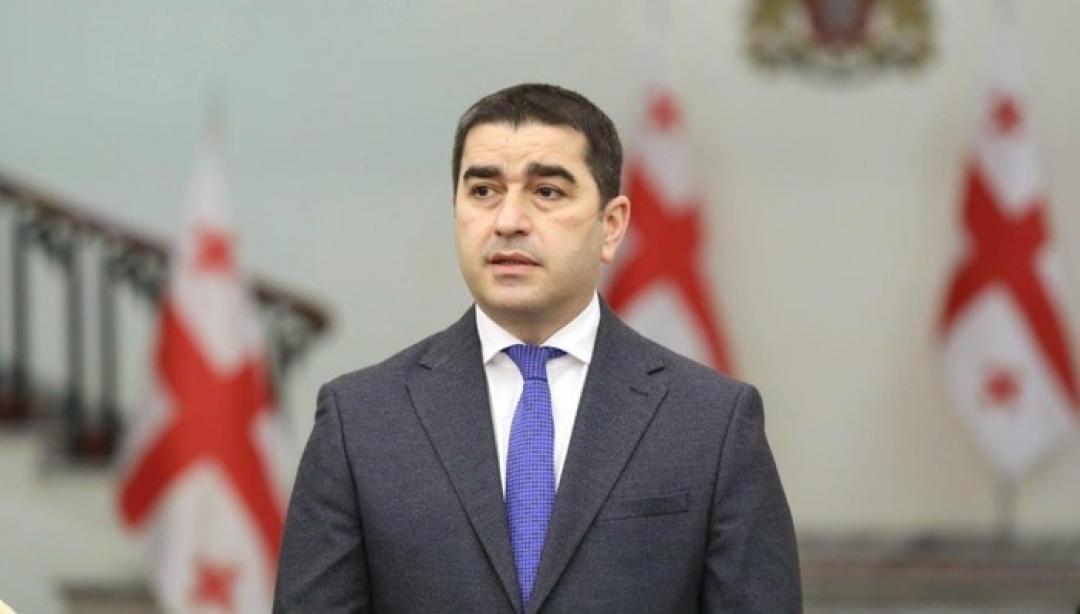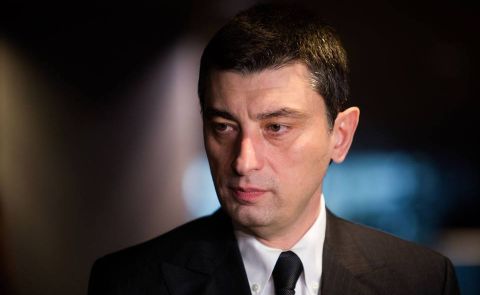
Shalva Papuashvili on Kelly Degnan's and David Kramer's Recent Statements

On November 23, Shalva Papuashvili, the Speaker of the Georgian parliament, said that Kelly Degnan, the US Ambassador to Georgia, made a controversial remark on the deoligarchization bill in Ukraine, adding that ambiguous statements on such delicate subjects are regrettable.
"No one has officially objected to taking into consideration the Ukrainian measure," said Papuashvili. "Unfortunately, puzzling remarks by the US ambassador caused a stir among the extremist opposition. Unfortunately, ambiguous statements cloud such crucial subjects. According to the European Council, this document is presently being debated. In addition, yesterday, my cabinet sent a letter to the Venice Commission asking about the progress of this law; we are now expecting a response from them. Nobody has publicly stated a refusal to consider Ukrainian legislation, and the EU representative has not provided us with such information," Shalva Papuashvili added. The Speaker claimed that the ambassador might have received inaccurate information. "Perhaps she got the wrong information. Such puzzling statements must be avoided throughout this process because only radical groups use this to find a cause for controversy. Therefore, it is crucial to confirm such information before making claims," Papuashvili emphasized.
Also, on November 22, Shalva Papuashvili responded to the statement of the former US Assistant Secretary of State David Kramer, according to whom sanctions should first be imposed on Bidzina Ivanishvili and on those who follow Ivanishvili's orders: "This is a direct attack on the government elected by the Georgian people, this is how the Speaker of the Parliament of Georgia."
Shalva Papuashvili stated, "If we observe how the term oligarchy arose in Georgian reality, we will realize that all of this was ultimately aimed at attacking the Georgian government. He who attacks the government elected by the people of Georgia cannot be a friend of the Georgian people, and this is an axiom. Therefore, this is how we should look at the whole situation. If we observe how the term oligarchy arose in Georgian reality, how it developed, and what interest was behind it - it was to label this or that person with a cliché. All this ultimately aimed to launch an attack on the Georgian government."
When asked whose interests may be behind the attempt to weaken the Georgian government, Shalva Papuashvili stated that it is the radical part of the opposition and their supporters inside the country or outside. "This is a common policy, which we can see even now, that in fact, the radical part of the opposition and their supporters inside and outside the country are holding the European future of Georgia hostage, and they are trying to trade with hostage-taking to weaken of the Georgian government. There is a desire to replace the government elected by the people, to somehow replace it by bypassing democracy. We remember what the situation was like after the elections. When they don't get the mandate, they cannot get the people's support. However, they try to bypass the elections to get power, and that's why they want to weaken the government elected by the Georgian people with hostage-taking and bring in the government that the people of Georgia have already rejected nine times because of the authoritarian regime they established, these are the real reasons. Be it an oligarchy, state capture, or other terms, these groups brought these terms to Georgia to discredit the country and influence the change of government in an undemocratic way," Shalva Papuashvili said.
Read also:
Shalva Papuashvili Explains Reason for Refusal of Resolution Criticizing Russia in PACE
Speaker of Georgian Parliament Addresses OSCE/ODIHR and Venice Commission
See Also


Pashinyan: “We Are Not Seeking to End Russian Troop Presence in Armenia”

Russia Begins 24/7 Radiation Monitoring in Dagestan After Iranian Nuclear Incident

How Do Caucasus States React to Israel-Iran War?

Weekly Brief on Military Situation in the South Caucasus (9–15 June 2025)

